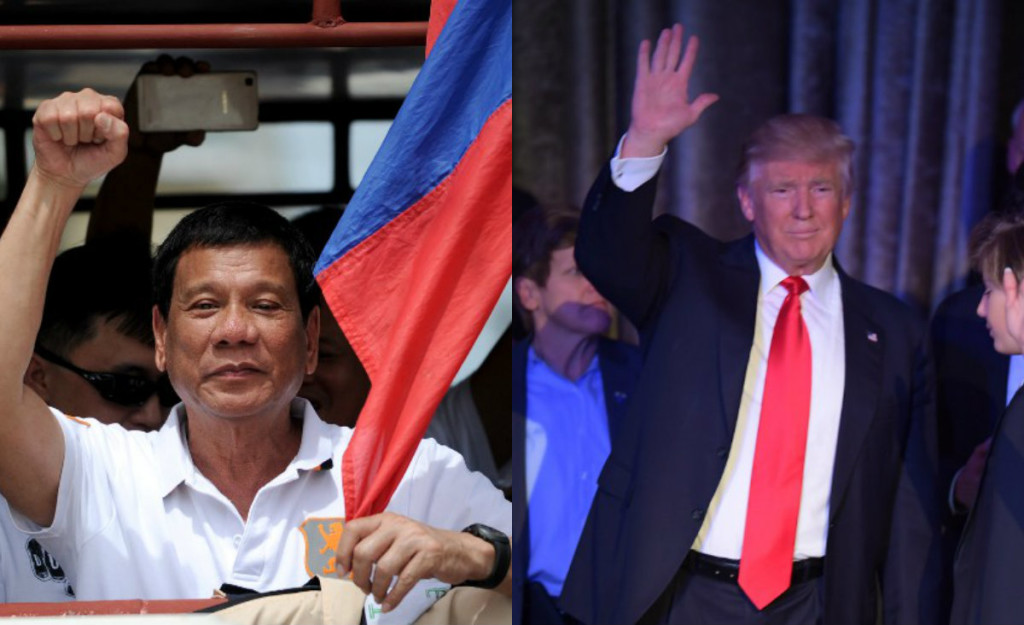DAVAO CITY — Donald Trump will be US president? No problem, if you ask the country’s chief economist, who on Wednesday said President Duterte’s pivot to China would save the Philippines from relying on a country “in trouble.”
Foreign businessmen, however, are worried about Trump’s protectionist tendencies, which may impact on the country’s business process outsourcing (BPO) sector.
Asked on the sidelines of the Philippines Development Forum how a Trump win would impact on the Philippine economy, Socioeconomic Planning Secretary Ernesto M. Pernia said “we have a safety net which was foreseen by the President.”
“He foresaw—he’s [President Duterte] a clairvoyant—there’s this likelihood of Trump becoming US president. So he decided to pivot to China instead of depending on the US,” said Pernia, also the head of the state planning agency National Economic and Development Authority.
“We’re now diversifying our friendship so that we don’t crash when the country we depend on is in trouble. That’s one saving grace I could see at this point, [although] it’s hard to speculate [on the impact of Trump’s win on economic relations between the Philippines and the US]. But let’s look at the positive—we’re rebalancing for greater integration with Asia,” Pernia said.
Finance Secretary Carlos G. Dominguez III, who heads the economic team, said he personally was “not sure what its effect will be,” although he cited that a stock broker already texted him saying “Oh no! Trump will win, market tanks now.”
“Stock market people are worried about the stock market here. But I’m not sure what policies a Trump presidency will follow. Candidates and presidents are two different people. So we’ll have to wait and see what are the policies a President Trump will implement,” Dominguez said.
National Treasurer Roberto B. Tan estimated US investments in so-called “hot money”—stocks and government securities—at around 60 percent of the total.
Pernia nonetheless noted that the US economy has remained largely private sector-driven despite some government influence. “I don’t think Trump can compel where private investments should go. That’s the decision of the businesses, not the government, unless there’s a way of penalizing them for investing abroad,” the NEDA chief said.
In a chance interview, American Chamber of Commerce of the Philippines senior advisor John Forbes echoed Pernia’s view, saying that “jobs [generated by US investors here] are private sector jobs and it’s not so easy for the public sector to stop jobs from going abroad.”
For Forbes, another plus point for Trump is his experience in business, which may help him form perspective towards foreign policy and national defense, although the incoming president does not have experience in public policy.
However, businessman Peter Wallace told reporters he was worried that Trump had expressed opposition to US jobs being exported through outsourcing.
“I’m worried for the BPO [business process outsourcing], the call center sector if he [Trump] makes true on his promises that he’s going to stop the immigration of jobs overseas. We’re in serious trouble,” Wallace said.
“This is not a good man to have as president of the leading country of the world. This is scary,” he added.
When asked if he thought Trump shared the same personality with the tough-talking Duterte, Wallace said he “totally disagrees.”
“They’re completely different people. The fact both are outspoken—they both say sometimes outrageous things—doesn’t make them the same kind of people,” Wallace said.
“President Duterte is a much more insightful, intelligent… a far better person I think than Donald Trump is,” he added.
Wallace nonetheless said he deemed “President Duterte will understand the kind of person Mr. Trump is and will be able to work with him.” SFM
